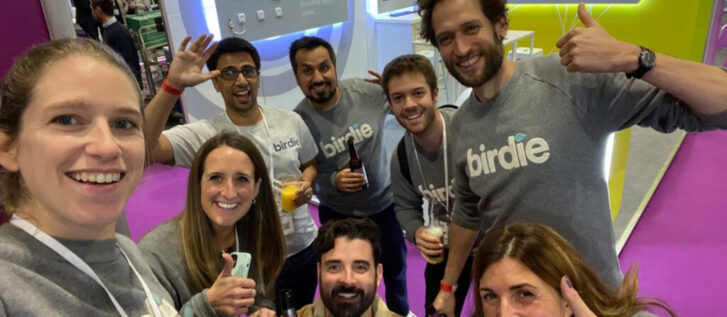
How to be a man
How to be a man, the Channel 4 two-part programme which launched this week, promised a lot...read more
Vital new research from University of Birmingham team looked at managers’ experience of lockdown and how it’s impacted their views on flexible working

The huge working from home experiment of 2020 has fundamentally altered managers outlook on flexible working.
With eight in 10 working dads telling our survey they were likely to request flexible working in future that’s an important change.
The finding is part of the latest work from the University of Birmingham’s Equal Parenting Project. They undertook a survey of hundreds of managers in conjunction with the University of Kent’s ‘Work Autonomy, Flexibility and Work Life Balance’ unit.
They’ve produced a new report titled ‘Managing Employees during the Covid-19 Pandemic: Flexible working and the future of work’.
During the Covid-19 lockdown, many organisations have been forced to move the majority of their workforce to remote working. In the spring in particular they had to manage that change at very short notice. In many cases businesses had previously discouraged flexible working. And many had very little infrastructure in place to support new ways of working. The researchers wanted to answer questions around what impact did this shift to home working have and what does this mean for the future of work?
The research team surveyed 742 managers from across the UK an in a range of industries. Questions covered norms for working from home, attitudes toward working from home, trust, key learning experience, what tools the organisation supplied to employees to enable them to work from home and what support was made available to the employees. It’s the first academic piece of research exploring managerial experiences during the Covid-19 pandemic in the UK.
More than half of managers reported over 80% of their employees have been working from home since lockdown. As a result of their experiences during lockdown, fewer managers now believe that presenteeism and long working hours are essential to career progression. Many managers also reported that working from home increases productivity, concentration, and motivation. Nearly two thirds of managers surveyed said that working from home increases productivity. Only 44% agreed with this statement before lockdown.
However, managers also saw some drawbacks. Around six in 10 managers said working from home led to isolation. Blurring of boundaries was also cited as a key negative outcomes.
Regardless, most managers now believe working from home will become much more commonplace in the future. They expect more jobs, including senior roles, to be advertised as being available for flexible working. They also expect more support to be available for home working.
Commenting on the report Dr Holly Birkett, Co-Director of the Equal Parenting Project at the University of Birmingham said: “The report shows managers are much more positive about working from home and flexible working, than they were before the pandemic. Managers say their organisations are going to be more supportive of home working and flexible working in the future, including more likely to support working from home, job shares and part time working even for Senior roles. This change along with the breakdown of the presenteeism culture and the removal of a flexibility stigma, which existed before Covid-19, could help improve employee wellbeing, help to support people to take on caring roles and break down many of the barriers women face to balancing career and family, with the potential to improve female representation on Boards and close the gender pay gap.”
Managers have faced a steep learning curve regarding how to manage remote teams, often with very little support or guidance. Despite this, managers have been pleasantly surprised about the results with their teams generally performing really well during this time. While there have been some performance issues these were generally where this was already an issue prior to lockdown.
Dr Sarah Forbes osCo-Director of the Equal Parenting Project. She said: “Due to positive experiences of working from home and with flexible working patterns amongst their staff, managers are keen to support more working from home and flexible working in the future. This could take the form of better flexible working policies and tools to facilitate this. As well as training being readily available for managers to learn how to better support remote workers in their team. However, we also need to understand working remotely over long periods of time can also be very isolating and that some people much prefer working in an office environment.”
The research team will discuss their findings at a webinar on Thursday. You can register for that here

Mandy Garner talks to birdie, winner of this year’s Best for SMEs category in the WM People Top Employer Awards. read more

The second instalment of our podcast has been released in which we talk about the Top Employer Awards 2023, mental health and ITV's Maternal. read more

We've had to adapt quickly to a new way of flexible working, especially with poor mental health affecting so many people working from home. So what... read more

The on site nursery is a huge benefit to parents at Next's HQ. But the family friendly culture runs right through the firm read more